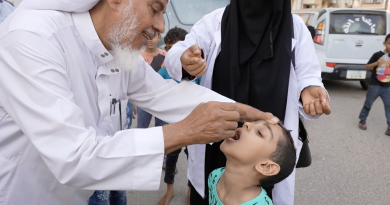Refugees from Bangladesh imprisoned in Sudan are running out of food and water
The Bangladeshis are sheltering at a school, where they are sleeping in claustrophobic classrooms on the ground.
While waiting to be evacuated from Sudan, hundreds of Bangladeshis are stuck in a small, makeshift camp and are running out of food and water. They also have no idea when they will be taken to safety.
Since violent violence broke out on April 15 between the Sudanese army and the paramilitary group Rapid Support Forces, thousands of foreigners have attempted to leave Sudan. The Bangladeshis are among them.
On April 24, when the warring groups declared a ceasefire, massive evacuations started.
While some Bangladeshi nationals were saved by Saudi security personnel, some 750 of those who had been designated for evacuation by their own government had to wait a week before they could be transferred from the Sudanese capital of Khartoum to Port Sudan in order to travel by sea to Saudi Arabia.
Since Tuesday, the group has been waiting to board a ship to Jeddah, but as the days go by, it’s getting harder to predict when that will happen.
Mohammed Bahadur, a Khartoum factory worker who was one of the evacuees, told Arab Media over the phone from Port Sudan that supplies were running low and that kids, including his 18-month-old daughter, were already becoming sick.
There isn’t enough water for drinking here. How much water can we reasonably purchase? We don’t even have enough to drink, much less take a shower,” he claimed.
“I’m at a loss for what to do. Given that this is a mosquito-prone location, children are also getting sick from mosquito bites.
The duration of the refugees’ stranding in the camp is a mystery, according to Bahadur.
Every day since we arrived, we have been informed that the ship will arrive soon. However, nothing is occurring, he said.
Anisur Rahman, head of the Bangladesh-Sudan Friendship Council and a former manager in Khartoum, said that while everyone was understanding in the early going, it was getting harder to put up with the worsening circumstances.
“Here, there are severe food shortages. Midway through April, the conflict started. When they were still in Khartoum, people used to purchase food and other necessities at costs that were 10 times more, he claimed.
“Because they hadn’t received their salaries, they arrived in Port Sudan with nothing. Even if food were readily accessible, they could not afford to buy it. Most people arrived here empty-handed because everything in Khartoum had been stolen.
Sanitary conditions might be challenging. About 700 men are sharing one lavatory, while women and children have been separated from the main throng.
Rahman stated that there was only one loo, which was run by a mosque. “There is always a long queue of 50 to 60 people in front of it.”
The Bangladeshis are sheltering at a school, where they are sleeping in claustrophobic classrooms on the ground.
According to Rahman, some Sudanese have stepped forward to help after learning about the situation and have purchased tents for the evacuees and brought extra food.
There was no one accessible to speak from the Bangladeshi mission taking care of the evacuees.
The date of the first batch of Bangladeshis’ ability to depart Port Sudan, however, has not yet been confirmed, according to Shah Mohammad Tanvir Monsur, director-general of the Consular and Welfare Wing of the Bangladeshi Ministry of Foreign Affairs.
The well-being of the evacuees is the top priority, and our embassy in Sudan has been requested to take all necessary measures, he said.
But because it’s a struggle, he also has some restrictions.



